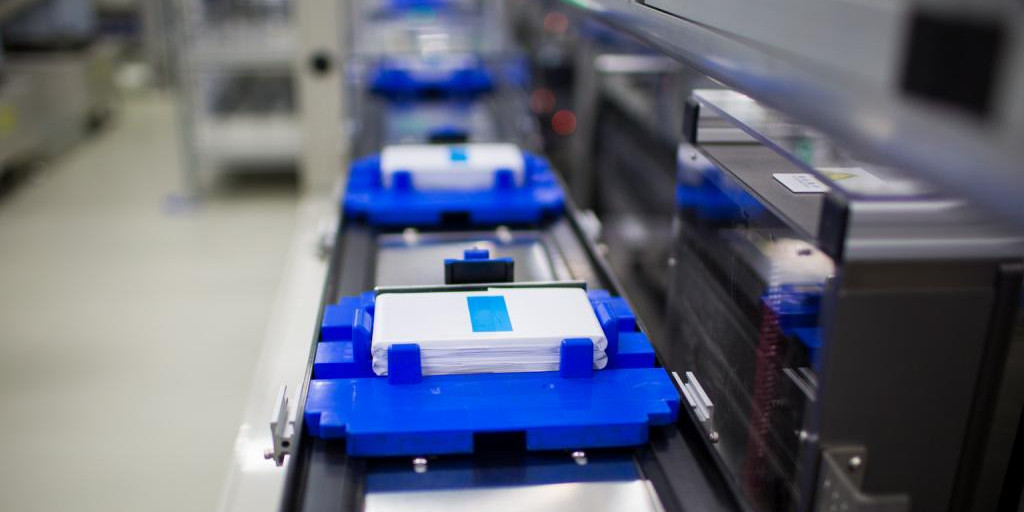The new US law, which includes $386 billion in tax credits for climate and clean energy, aims to build a US industry of electric vehicles (EV) and batteries by 2030. Whether this is possible is highly questionable given that the US has deliberately rejected Chinese input, but China is a major supplier of the necessary raw materials.
Both the House of Representatives and the Senate have passed the Inflation Reduction Act, a multi-sector bill with $386 billion in tax credits to promote clean energy production, electrification, retrofitting of green technology for homes and buildings, use of cleaner fuels, and the environment. Safety and wider adoption of electric vehicles and batteries. Only President Biden needs to sign.
The legislation aims to electrify the transportation sector, the largest source of greenhouse gas emissions in the United States. The Biden administration aims to have at least half of Americans buy “Made in America” electric vehicles by 2030 instead of running on fossil fuels. To that end, the law seeks to incentivize electric vehicle (EV) production for local automakers and potential buyers. These measures are aimed at keeping a ‘concerned foreign power’ (read China) out of supply chains.
To that end, the law provides a $7,500 tax credit for a new vehicle and a $4,000 tax credit for a used electric car that is contracted and processed. By 2026, the law requires that no less than 80 percent of components must be assembled or procured domestically or in a friendly country, and by 2029 that figure must be 100 percent. However, 70% of current electric vehicles in the U.S. will not be eligible for incentives starting January 1, 2023.
China
According to Professor Jonas Nahm Johns Hopkins University Even because no vehicle can enjoy the benefits first Tesla The battery contains lithium from China. For example, there is Tesla CATL The battery supply contract, which runs until the end of 2025, has come to an end. According to Nahm, the planned timetable is unrealistic.
Geographically, Australia produces more than half of the world’s lithium, followed by Chile and China. According to the US statement, this order is reversed when reserves arrive Peterson Institute for International Economics . China currently accounts for 79% of the production capacity for lithium-ion batteries, compared to just 7% for the US, and leads Western powers in refining and processing 59% of the world’s lithium. USA and Canada are 3 and 3.5% respectively. Between now and the end of 2024, it is almost impossible for Australia and Chile to fill the US resource gap, said London-based CEO Simon Moores. Benchmark Mineral Intelligence. He mainly mentions that lack of time is appropriate and the capital required is less. After all, it takes seven years to build a mine and refinery, but only 24 months to build a battery factory. ‘Zero Emission Transport AssociationA federal coalition that supports 100% electric vehicle sales by 2030 has requested an extension of its compliance deadline from 12 to 18 months.
Chief Executive Officer is John Bocella Alliance for Automotive Innovation He shares the goal of not becoming dependent on China, but called the bill’s requirements “unattainable and punitive for consumers.” At present, we cannot meet the demand of these raw materials alone. That is the reality,” he said. Battery manufacturer CATL I thought of building a factory in the US, but the idea blew up CHIP Act. Yesterday, the company announced that it will build a factory in Debrecen, Hungary.
The question is also what will be under the law of the MoU between them CATL And Ford It’s also worth noting that lithium iron phosphate (LFP) battery packs are scheduled to be offered to North American Mustang Mach-E models and the North American F-150 Lightning in early 2024. Thackeray pass In the far northern state of Nevada, the largest known lithium deposit in the United States has sparked concern and protest Environmental groups, tribals and local farmers.
SCMP, Global Times

“Passionate analyst. Thinker. Devoted twitter evangelist. Wannabe music specialist.”








More Stories
Cooperation between the US and China ensures more stable corporate finance – FM.nl
New US peace proposal for Gaza war ‘may be too smart for either side to say no’
Bitcoin weathers bankruptcy storm in US